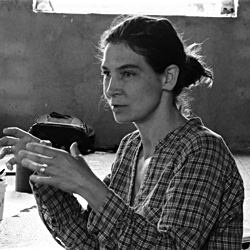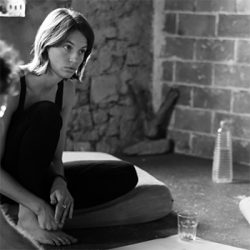reframing and enabling leadership for social transformation
This course aims to build skills to leverage the capacity of self awareness, response-ability and empowerment amongst people in social movements involved in uncertain and rapidly changing contexts. This training is hosted as part of the Ulex South Project
Revolutionaries do not make revolutions. The revolutionaries are those who know when power is lying in the street and then they can pick it up. (Hannah Arendt)
The course will focus on three aspects:
First reflecting on the nature and meaning of change-making within social, political and environmental movements whilst acknowledging the increasingly uncertain and rapidly changing global realities. Given this complex and volatile backdrop, we need to enable new ways of understanding and acting so that we can remain relevant, coherent, enlivened, available and sane. This capacity to see and act is what we will be calling leadership.
Change is a constant matter happening every time, so that every time offers the opportunity for a new beginning, a new moment to shift and influence.
Leadership is not a trait that certain people hold – but something we all hold. We all shape the situations around us, whether actively or passively. Whether consciously or unconsciously. This course aims to become attuned to the forming of form, to better see the ways in which a situation is created so that we can identify the ways in which we can act in the moment, to change and influence in the concrete unfolding of a conversation.
Second we will explore our own patterns of response and action. How does the need to act and participate arise in us? What is the nature of that action, where does it come from? What limits our capacity to respond authentically, what enables it?
We will use Theatre of the Oppressed, Social Presencing Theatre, improv theatre and complexity games to play scenes so that we can reflect upon them to better see ourselves, our leading moves and paralyzing moves too. To learn better of ourselves as leaders.
Third we will build skills to be able to sharpen our contributions and better facilitate groups. We will strengthen our reflective practice based on action learning, work with communication and voice, listening and speech, storytelling, observation and awareness practice.
In these troubled, uncertain times, we need better means to engage everyone’s intelligence in solving challenges and crises as they arise. (Meg Wheatley)
Approaches and Methodologies:
Through participatory, reflective and experiential methodologies we will deepen into the skills, values and tools that will allow you and your groups to tap into new ways of thinking about leadership, and tapping into the energy flow of leading movements that create change. This workshop holds a personal and collective focus, both to offer skills and tools to the person and methodologies and frames at a group level to make leading moves and actions.
We will use: Art of Hosting methods, social phenomenology and process work, Theory U, Complex living systems theory, purpose work, social presencing theatre, improvisation, facilitation, empathic listening and conscious communication, generative dialogue, awareness practice and observation.
Venue
This training is hosted as part of the Ulex South Project
Bibliography
Pagina web de Arawana Hayashi (SPT) https://arawanahayashi.com/
Shaw, P. (2002) Changing conversations in organizations: A complexity approach to change. Routledge. London.
Margaret J. Wheatley, Leadership and the New Science: Discovering Order in a Chaotic World (1999, 2006)
Improv Games:
In the solidarity economy:
(See details of our approach to radical economics here)
Contact us
to apply

Location:
María worked for the Red Cross in community development, strengthening civil society, education, and food security in Latin America and Africa. Building on her studies in social psychology and international development, she studied Alternative Economics at Schumacher College, UK. This led her into work on organisational change with NGOs and grassroots movements. María specialises in complexity and participation applied to organisations: organisational structures and culture, emergent strategy, leadership amongst others. She co-founded The Eroles Project, a learning for action project and La Bolina, a systemic project looking at repopulation, inclusion and agroecology. María´s co-authored: Small is Important: Learnings from an integration and regeneration Project. Factores Clave para la Acción Reflexión Colaborativa, Enfoques y herramientas participativas en la cooperación al desarrollo, Activism and spirituality.

Location:
Ruth Cross is co-founder of Eroles Project – an international learning for action centre, and, Asociación La Bolina – a visionary intercultural initiative working to regenerate land and lives through creating social integration and sustainable livelihoods for locals, migrants and refugees in El Valle, Andalucia, Spain. She is the Artistic Director of Cross Collaborations, an award winning arts for change immersive theatre company.
Ruth is an experienced arts activist, social theatre maker, researcher and educator specialising in instigating transformative and regenerative change. She can be found directing immersive performance with migrants and refugees, creating participatory arts action campaigns and coordinating cross-disciplinary projects with organisations, decision-makers, civil society and local communities.
For the last 10 years Ruth has facilitated capacity building training with activists and social movements. She is a research contributor with Schumacher Research in Action community, is a member of the international Delicate Activism community and of Social Arts network ImaginAction. As well as a collaborator with Asociación Solidaria Andaluza de Desarrollo (ASAD).

Location:
An Maeyens (she/her) is a facilitator and trainer with over two decades of experience in grassroots movements. She specialises in creative, inclusive agenda design and brings deep expertise on group culture, power dynamics, and transformative learning. Starting of in the anti-globalisation movement she has trained thousands in civil disobedience, supported international coalitions, and developed multilingual training programmes and toolkits. Her work spans movements, cultures, and countries, guided by a commitment to care, accessibility, and leaderful organising.

Location:
Ari’s activism began in 2002, at age 16, as a Bosnian refugee in Canada, where they founded and coordinated a group for LGBTIQ high school students and allies. They were a co-founder and leader at kolekTIRV in Croatia and Trans Network Balkan, involved in community organizing, advocacy, program management, team coordination, capacity building, education, media work, campaigns, events, fundraising, etc. In 2024, they joined the Supervisory Board of the Croatian Trade Union Collective of United Precarious Workers and Activists (SKUPA).
Beyond the Balkan region, Ari served as a Board member at Transgender Europe (TGEU), where they held roles as Secretary, Treasurer, and later Co-chair. They have also been a trainer with the Center for Artistic Activism and served on the Advisory Committee and since 2022 as a Community Care Facilitator at FRIDA — The Young Feminist Fund. Since 2024 they are the Operations Manager at Global Philanthropy Project.

Location:
Sergio (all pronouns) was born in Romania and migrated to Germany in the early 2010s. In the past, he was a social worker with homeless people and a social consultant for Eastern European migrants for various organisations. Trained as a filmmaker, he spent two years making a documentary about the ‘civic reawakening’ in Romania and the waves of protest it brought with it. In connection to this, Sergio is currently co-steering the development of an online open-source participative knowledge production platform on activism in Romania. Over the past nine years, Sergiu has offered his skills to various journalists, grassroots collectives and campaigns, mostly working within the labour rights, climate justice, international solidarity and anti-authoritarian movements in Germany and Romania. Nonetheless, his biggest focus since 2020 has been his work as an organiser with the anarcho-syndicalist Free Workers Union, where he focuses mostly on organising Romanian migrant workers on construction sites, in factories and in the agricultural field.

Location:
Linzy Na Nakorn is a movement director, politicised somatics practitioner, community organiser and facilitator. For the past decade she has been facilitating movement, body work and creating theatre, dance and participatory performance that advocates for and organises with communities in pursuit of housing, disability and racial justice. Her movement practice focuses on trauma-informed approaches to building resilience, capacity and joy via way of the body for personal, interpersonal and community sustainability. Linzy was a Co-Director of The Big Ride for Palestine in partnership with The Gaza Sunbirds, Native Woman Ride and Middle East Children’s Alliance; using cycling as a tool for mobilising active solidarity and in support of campaigning for the rights and self-determination of the Palestinian people. Linzy is part of a UK network of activists and artists advocating for Radical Care – supporting organisations, researchers and institutions to work towards system change in societal approaches to labour, leadership and access.

Location:
Jeroen (he/him pronouns) has been involved in grassroots social movements for more than two decades now, starting back when he was fifteen. Throughout the years the fights for “climate justice” and “migrant justice” have been consistently on top of the list of struggles that make his heart beat faster. A key transformative moment for Jeroen was reading Paulo Freire’s Pedagogy of the Oppressed. Freire’s revolutionary pedagogy gave him a language to support the creation of emancipatory learning environments, rooted in a desire for collective liberation. Jeroen has also been exploring in depth Boal’s Theatre of the Oppressed and Joanna Macy’s The Work That Reconnects among other methodologies to build his trainer’s toolkit. Inspired by the liberatory possibilities of these traditions, he started an organization with a friend, LABO vzw, based in Belgium, where he has worked as a trainer and campaigner between 2013 and 2023.

Location:
Ella brings more than 10 years’ external experience working with not for profit and community based organisations across diverse themes including: advocacy for migrant communities; local community engagement in national policy making; and structural relationships between poverty and disenfranchisement, and education and poverty. Immersed in critical theory in her early 20s she brings a holistic and questioning approach, and is passionate about systemic solutions that centre relationship and interconnection between ecology and society. A long standing member of the collective, Ella has been part of the core team since the inception of the Ulex Project. Her work bridges facilitation, developing project partnerships, governance, strategy, operations, and project and programme evaluation. She has developed and overseen more than 70 partnerships with a range of different actors across European social movements.
Ulex: Latin (argelaga Catalan, gorse English) noun:
1. A thorny-evergreen flowering shrub, with a high capacity for regeneration and resilience. Its seedpods open in contact with fire and it reshoots from charred stumps. A successionary plant that grows well under challenging conditions. It improves soil fertility through nitrogen fixing, preparing the way for renewed biodiversity.
2. A traditional choice for igniting fires. Burns hot and bright.
3. A networked project adding nutrition and fertility to European social movements through training and capacity building. It kindles the realisation of social justice, ecological intelligence, and cognitive vitality.